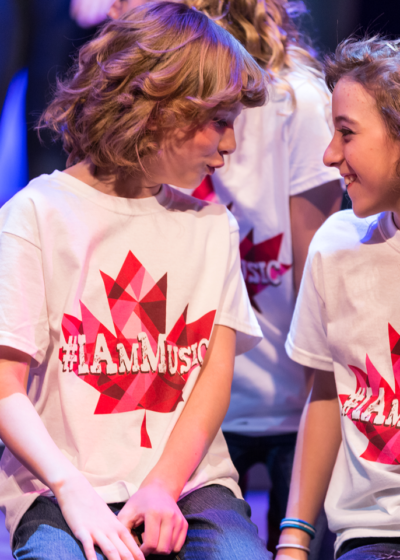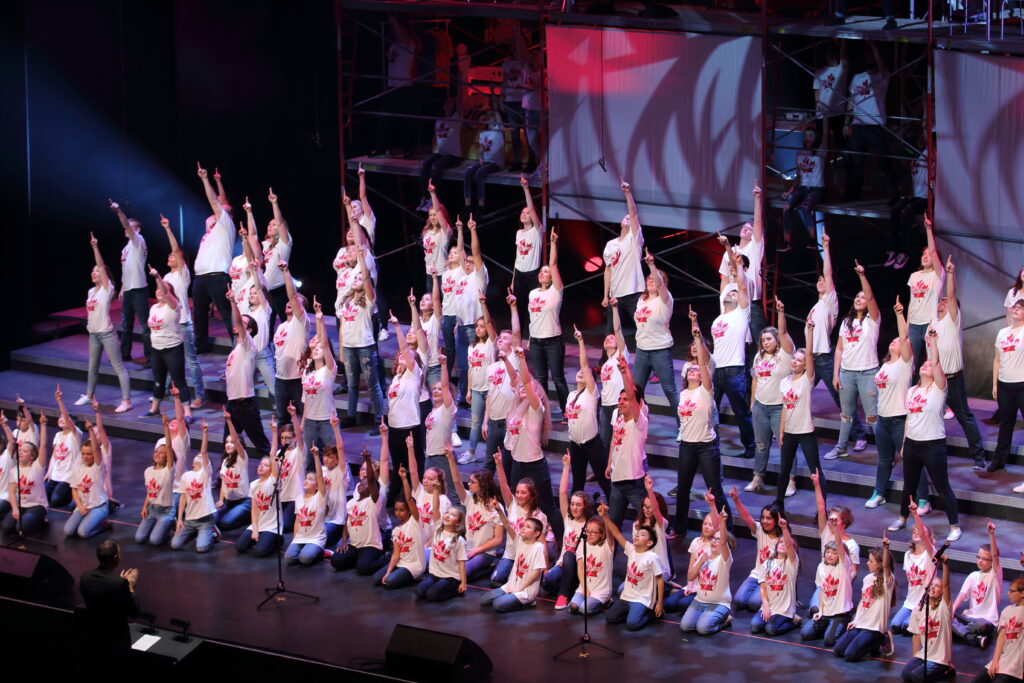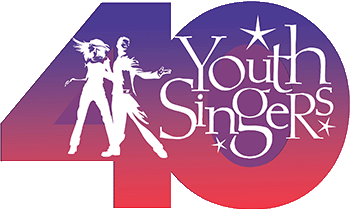
The Power of Performing Arts to Build Mental Wellness in Young People
By Dr. Laura Hambley Lovett
(Read on the Calgary Herald Website – Published October 21, 2023)
As I was watching a talented show choir, the Youth Singers of Calgary, perform this past spring, I witnessed nothing short of incredible teamwork, energy, and growth. My 12-year-old daughter – who had been struggling with anxiety and self-confidence – literally came into herself during the stage performances and tour, bursting with enthusiasm and pride. Reflecting on nearly 40 years of operations, I’ve come to understand how this performing arts program has nurtured tens of thousands of children and youth, shaping them into resilient adults as part of an inclusive and supportive community.

As a psychologist, I couldn’t help but consider the link between this type of show choir experience and mental health. I decided to investigate further and am eager to share how the evidence indeed supports the significant benefits of performing arts for young people.
Mental Health Challenges are a Major Concern for our Young People
Mental health challenges have been a growing concern for today’s young people. According to the World Health Organization (WHO), approximately one in seven individuals aged 10 to 19 experience a mental health disorder. Depression, anxiety, and behavioral disorders stand as primary contributors to illness and disability within the adolescent population. According to UNICEF (2022) and WHO (2023), self-harm is the leading cause of death for adolescents between the ages of 15 and 19.
Performing Arts: A Foundation for Mental Well-being and Resiliency
There are many interventions being used to treat mental health challenges in children and youth, including therapy and medication. Exercise, diet, and sleep are basic building blocks of mental wellness, as are social connection and community support. Mental wellness requires a host of supports and habits, and the social and physical isolation of the pandemic left young people more vulnerable to mental health challenges. For example, the National Institute of Mental Health (NIMH) reported a notable increase in acute youth emergency department visits for mental health, especially among teen girls.
When I interviewed leading Harvard researcher/Psychiatrist, bestselling author of 10+ books, and expert on brain health, Dr. John Ratey, on my Where Work Meets LifeTM podcast (S3 E57: The Power of Exercise to Optimize your Brain and Mental Wellness), I learned just how powerful the performing arts are when it comes to mental wellness in youth. We explored his latest book Spark: The Revolutionary New Science of Exercise and the Brain, which covers exercise’s ability to vastly improve mental health.
When specifically asked about the most effective form of exercise for bolstering mental wellness, Dr. Ratey stated that it’s dancing in groups. He referred to Adele Diamond, a leading neuroscientist from Vancouver, who recommends we get out there and dance, as it’s the best way to turn on your brain, and you can have fun doing it! Connecting with others, having fun and laughing: all these things are what happens in the performing arts.

How Performing Arts Cultivate Mental Well-being in Youth
There are many elements of the performing arts that contribute to mental well-being. Some of these positive impacts are that performing (dancing and singing in particular) in groups:
-
Provides a Healthy Emotional Outlet.
The performing arts allow the venting of emotions through song and movement. According to a recent study on the role of the arts in the life and mental health of young people, when young people have challenges communicating their feelings, expressing through song and dance is an effective outlet.
-
Provides Social Support and an Inclusive Community.
Another way that performing arts helps young people’s mental wellness is by providing a supportive social environment outside of school where they have common interests and can feel part of a community. According to a recent Psychology Today article on The Mental-Health Benefits of Singing in a Choir – July 2023, choir experiences reduce loneliness and foster healthy relationship development.
-
Reduces Stress and Anxiety.
A third benefit of performing arts activities in groups is the reduction of stress and anxiety. In a study conducted in Columbia, artistic expression was recognized in managing psychological stress and emotions like anger, depression, and anxiety by either transforming these emotions through expression or distracting from them. Additionally, performing arts-based group activities are linked to a decrease in negative emotions and an increase in positive ones.
-
Increases Optimism.
Another benefit of performing arts, and choirs in particular, is that they lower symptoms of depression. In fact, nearly 3 out of 4 choir singers report increased optimism. Furthermore, 80 percent of choir singers expect more good things than bad things to happen to them, compared to only 55 percent of the general public.
Performing Arts Versus Sports
The performing arts are often viewed as less active and not as team-oriented compared to sports. As a result of this misconception, many sources of community and corporate funds focus on supporting sports. In contrast, the performing arts face greater challenges to secure sources of funding, yet the skills and teamwork developed through these groups are just as, if not more, impactful to the mental well-being of our children and youth.
Whether it’s sports or the performing arts, both employ movement and the ability to adapt our actions to those of others. Developing empathy, a unique benefit of the performing arts , encompasses steep learning curves that culminate in public performances, fostering physical, technical, and social skills development. As a result, youth are more likely to develop a growth mindset, building self-awareness and confidence. These lifelong benefits build better adults who can adapt and thrive in the challenges they face in their work and lives.
The Case is Clear: Support for the Performing Arts Must be Elevated
The performing arts need to be treated as an equally important and impactful endeavor to sports when it comes to developing mentally healthy and resilient young people. As a society we need to support the mental health of our young people, which has taken a hit through and beyond the pandemic. An incredible avenue for developing resiliency and supporting mental wellness is the performing arts, and show choirs in particular. Choirs that involve singing and dance are particularly beneficial as they enable teamwork, physical activity, and a sense of community and social support. It’s imperative that these groups receive equitable funding alongside community sports, so our young people can flourish.
To learn more about Supporting the Youth Singers of Calgary visit: https://www.youthsingers.org/support-ysc/
